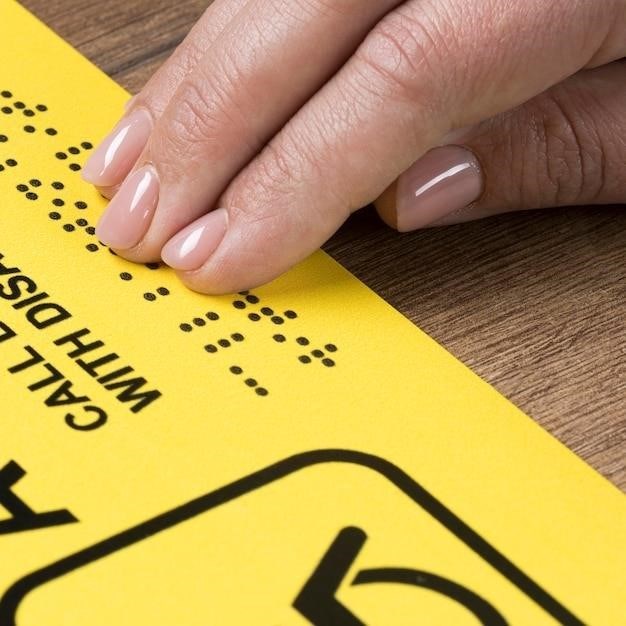
phonics screening 2024 pass mark pdf
Phonics Screening Check 2024
The Phonics Screening Check 2024 is a test to assess and show how well your child can use and apply the phonics skills that they have learnt up to the end of Year 1․ Every child in Year 1 in England has to take the Phonics Screening Check․ The child takes the test during a one-to-one sitting․․․
What is the Phonics Screening Check?
The Phonics Screening Check is a short, one-to-one assessment administered to all Year 1 pupils in England․ It is designed to assess a child’s ability to decode words using their knowledge of phonics, which is the understanding of the relationship between letters and sounds․ The check is conducted by a teacher, who reads out a list of , and the child is asked to read each word aloud․ The check aims to identify children who are not yet meeting the expected standard in phonics and to provide them with additional support․
Purpose of the Check
The Phonics Screening Check serves several crucial purposes․ Firstly, it provides a standardized assessment of a child’s phonics skills, allowing teachers to gauge their progress and identify those who may require additional support․ Secondly, it helps to ensure that all children are given the opportunity to develop their reading skills and achieve the expected standard․ Thirdly, the check acts as a valuable tool for schools to monitor the effectiveness of their phonics teaching and make adjustments as needed․ Ultimately, the Phonics Screening Check aims to support children in becoming confident and fluent readers, enabling them to access and enjoy the vast world of literature․
Who Takes the Check?
The Phonics Screening Check is mandatory for all children in Year 1 in England․ This means that every child who has reached the age of five years old by the 31st of August in the academic year must participate in the check․ It is designed to assess their ability to decode words using their knowledge of phonics, a fundamental skill for reading development․ The check is administered individually by a teacher, ensuring a personalized and supportive environment for each child to demonstrate their skills․ Regardless of their background or learning pace, all Year 1 students are required to take the Phonics Screening Check․
Administration of the Check
The Phonics Screening Check is administered individually to each Year 1 student by a teacher․ This one-to-one setting allows for a focused and supportive environment where the child can demonstrate their phonics skills without distractions․ The teacher reads a list of , one at a time, and the child attempts to read each word aloud․ The teacher marks whether the child reads the word correctly or incorrectly․ The test is designed to be quick and efficient, typically taking only a few minutes per child․ The administration process is standardized across all schools in England, ensuring fairness and consistency in the assessment․ The check is conducted during a specific week in June, as outlined by the Department for Education․
The Pass Mark
The pass mark for the Phonics Screening Check is a crucial indicator of a child’s progress in phonics development and readiness for reading․
Threshold Mark
The threshold mark for the Phonics Screening Check is the minimum score required for a child to be considered as having met the expected standard in phonics․ This score is set by the Department for Education (DfE) and is typically announced in June after the test has been administered nationwide․ The threshold mark for the 2024 Phonics Screening Check is 32 out of 40․ This means that a child needs to read at least correctly out of the 40-word list to pass the check․
The threshold mark is designed to be a measure of a child’s ability to decode words using their phonics knowledge, not their overall reading ability․ It is important to note that the threshold mark is not static and can change from year to year․ The DfE will publish the threshold mark for the 2024 Phonics Screening Check in June 2024․
History of the Pass Mark
The Phonics Screening Check was first introduced in 2012, and the pass mark has remained consistent at 32 out of 40 for the past two years․ This means that children needed to read at least correctly out of the 40-word list to pass the check․ This consistency in the pass mark allows for a more accurate comparison of results across different years․ It also helps to ensure that the check is a fair and reliable measure of a child’s phonics skills․
While the pass mark has remained unchanged for the last two years, it is possible that the DfE may adjust it in the future․ This decision will be based on a variety of factors, including the performance of children on the check, the overall quality of phonics teaching in schools, and the latest research on phonics․
Importance of the Pass Mark
The pass mark for the Phonics Screening Check is crucial for a number of reasons․ Firstly, it serves as a benchmark for schools to assess the effectiveness of their phonics teaching․ If a significant number of students fail to meet the threshold, it indicates a need for adjustments to teaching strategies and resources․ Secondly, the pass mark helps to identify children who may require additional support with their phonics skills․ Schools can then provide targeted interventions to help these children catch up and reach the expected standard․
Furthermore, the pass mark has a wider impact on the education system․ It provides a clear measure of progress in phonics at a national level, allowing for monitoring and evaluation of the effectiveness of the phonics curriculum․ This information can then be used to inform policy decisions and ensure that all children have access to high-quality phonics instruction․

Resources and Information
This section provides access to essential resources and information for parents, teachers, and schools regarding the Phonics Screening Check․
Official Guidance
The Department for Education (DfE) provides comprehensive guidance on the Phonics Screening Check, outlining the statutory requirements and procedures for administering the test․ This guidance is essential for schools, local authorities, and governing bodies responsible for the phonics screening check․ It covers key aspects, including the assessment and reporting arrangements during key stage 1 (KS1), for the academic year 2023 to 2024․ The guidance also includes a list of important dates, ensuring that schools are informed about the timelines for the check․ It is crucial for schools to familiarize themselves with this official guidance to ensure they are following the correct procedures and meeting the statutory requirements for the Phonics Screening Check․
Past Papers and Marking Guidance
To support teachers and schools in preparing for the Phonics Screening Check, past papers and marking guidance are readily available for free download․ These resources provide valuable insights into the format, content, and expectations of the check․ The past papers allow students to familiarize themselves with the types of words they may encounter during the actual test, while the marking guidance provides detailed instructions on how to score the responses accurately․ Access to these resources ensures that teachers and schools can adequately prepare students for the Phonics Screening Check, enabling them to assess their progress and identify areas where further support may be needed․ Past papers and marking guidance are crucial tools for effective preparation and ensure a fair and consistent approach to administering and scoring the Phonics Screening Check․
Free Downloadable Materials
A wealth of free downloadable materials are available to support teachers and schools in delivering effective phonics instruction and preparing students for the Phonics Screening Check․ These resources can be accessed online and include a range of materials, such as word lists, practice activities, and PowerPoint presentations․ These materials provide teachers with valuable tools to engage students in phonics learning, reinforce key concepts, and develop their reading skills․ By utilizing these free downloadable materials, teachers can enhance their teaching strategies, provide targeted support to students, and ensure that all pupils are adequately prepared for the Phonics Screening Check․ The availability of these resources ensures that teachers have access to high-quality materials that support their teaching and enable them to provide effective phonics instruction․
Support and Further Information
For additional support and information regarding the Phonics Screening Check, various resources are available․
Contact Details
If you have any questions or require further information about the Phonics Screening Check, you can contact the Department for Education (DfE) directly․ You can reach them by phone at 0300 303 3013 or by email at assessmentseducation․gov․uk․ The DfE is the primary source for all official guidance and updates regarding the Phonics Screening Check, including the pass mark and administration procedures․ They are a valuable resource for parents, teachers, and schools seeking clarification on any aspect of the test․
Additional Resources
In addition to the official guidance provided by the DfE, there are numerous online resources available to support parents, teachers, and schools in understanding and preparing for the Phonics Screening Check․ Websites like ReadingWise offer valuable information and insights into the test, including dates, scoring guidelines, and helpful tips for preparation․ Additionally, numerous online platforms provide free downloadable materials, such as past papers, marking guidance, and word lists, which can be invaluable for both students and educators․ These resources provide a comprehensive overview of the test format, content, and expectations, enabling individuals to gain a deeper understanding of the Phonics Screening Check and its importance in early literacy development․
Frequently Asked Questions
Parents, teachers, and school staff often have questions about the Phonics Screening Check․ Common inquiries include⁚ “What is the pass mark for the 2024 Phonics Screening Check?” The threshold mark for the 2024 Phonics Screening Test was 32 marks out of 40․ Children who scored 32 marks or more met the expected standard while those that․․․ Another frequently asked question is, “When does the Phonics Screening Test take place in 2024?” Schools should administer the check during the week beginning Monday 10 June․ Section 3 of the 2024 assessment and reporting arrangements (phonics screening check) contains a list of important dates․ These FAQs provide valuable information to address common concerns and ensure a smooth and successful administration of the Phonics Screening Check․